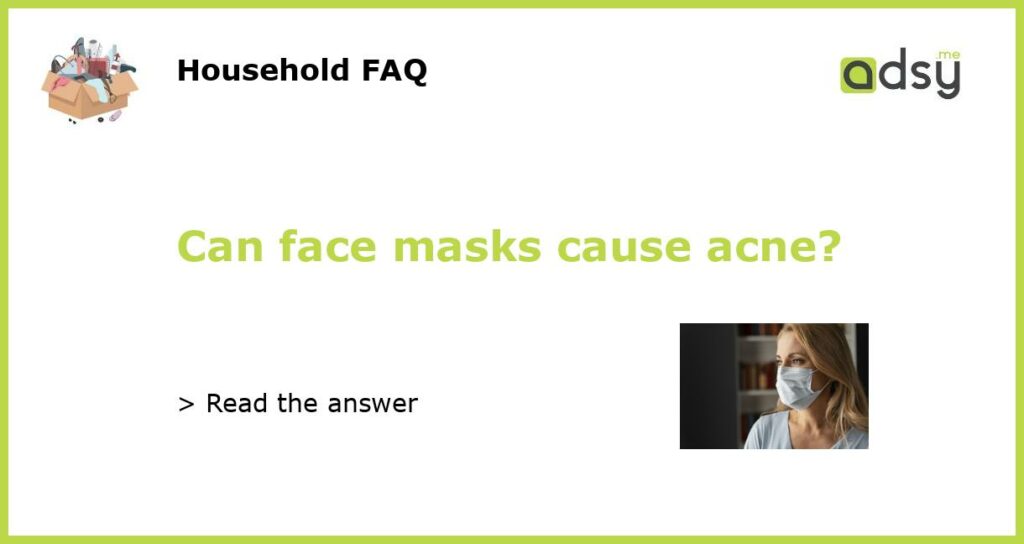Can face masks cause acne?
With the COVID-19 pandemic, face masks have become an essential item in our daily lives. While they protect us from the virus, they can sometimes cause acne or worsen existing breakouts. Here, we will discuss the relationship between face masks and acne and offer some tips on preventing mask-related breakouts.
What causes mask-related acne?
Mask-related acne is caused by prolonged wearing of face masks, which trap heat and moisture, creating a breeding ground for bacteria. The friction of the mask rubbing against the skin can also cause irritation, leading to inflammation and breakouts. People with existing skin conditions such as rosacea or dermatitis are more likely to experience mask-related breakouts.
How to prevent mask-related acne?
Prevention is key when it comes to mask-related breakouts. Here are some tips that can help:
- Choose a mask made of soft, breathable fabric such as cotton.
- Wash your mask regularly, preferably after each use.
- Apply a gentle, non-comedogenic moisturizer before putting on your mask to create a barrier between your skin and the mask.
- Avoid wearing makeup under your mask.
- Take mask breaks as often as possible to let your skin breathe.
How to treat mask-related acne?
If you do experience mask-related breakouts, there are steps you can take to treat them:
- Wash your face twice a day with a mild cleanser.
- Avoid picking or popping your pimples, as this can lead to scarring and further breakouts.
- Apply a spot treatment containing benzoyl peroxide or salicylic acid to help reduce inflammation and clear up breakouts.
- Consult with a dermatologist if your acne persists or becomes severe.
While wearing a face mask during the pandemic is essential, it can sometimes cause acne or worsen existing breakouts. By taking preventive measures and treating breakouts promptly, you can minimize the impact of mask-related acne on your skin. Remember to be patient and gentle with your skin, and consult with a dermatologist if your acne persists or becomes severe.






